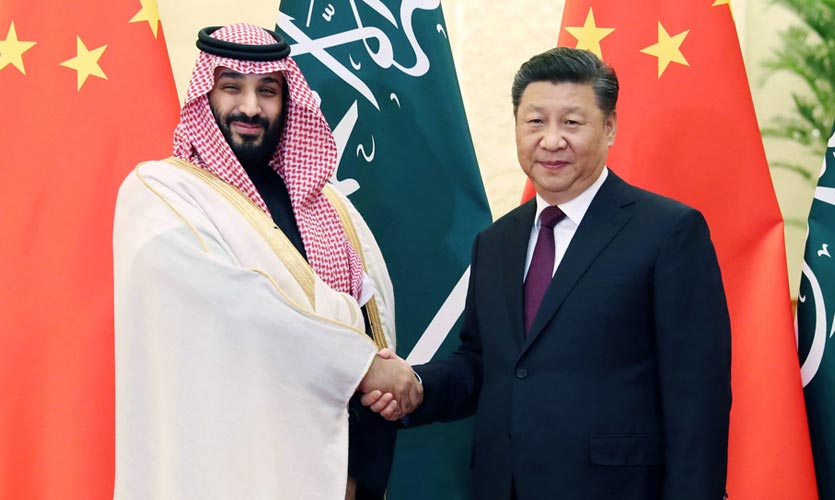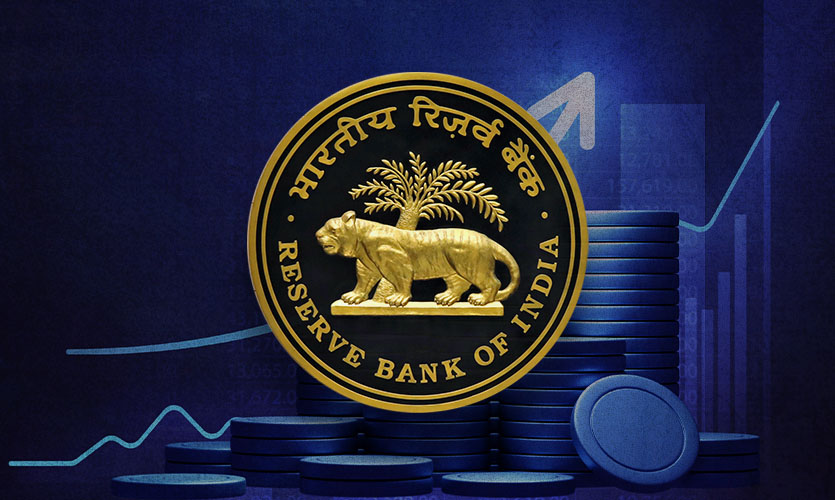A report published by the Wall Street Journal, on March 15, highlighted the ongoing talks between Saudi Arabia and China, to price some of the former’s oil sales to the latter, in yuan. The report suggested that if the deal is confirmed, the outcome could pose a problem to the US dollar’s dominance in the global petroleum market, and mark another shift by Saudi Arabia, the world’s top crude exporter toward Asia. It is not the first time that China has attempted to buy oil in yuan rather than in US dollars. These discussions have been through a series of surges and falls over the last six years. However, there is a chance that China has found a willing seller in Saudi Arabia. The report further suggested that China’s leader Xi Jinping could visit Saudi Arabia in May.
The talks have accelerated this year due to Saudi’s growing unhappiness with the US’ lack of support to them in Yemen’s civil war, and the ongoing nuclear deal with Iran. Saudi officials have also expressed disappointment and shock over the US’ exit from Afghanistan last year. During his 2020 presidential campaign, Biden had said that the middle-eastern kingdom is a “pariah”, for killing Saudi journalist Jamal Khashoggi in 2018. According to the US intelligence, his murder was ordered by crown prince Mohammed bin Salman. This has further affected the relationship between the two countries.
Saudi Arabia exports a quarter of its oil to China, and since the beginning of 2022, it overtook Russia in sending the most oil there. According to data from China’s General Administration of Customs, Saudi Arabia was China’s top crude supplier in 2021, selling at 1.76 million barrels a day, followed by Russia at 1.6 million barrels a day. If priced in yuan, the oil sales would benefit China’s currency standing in global markets. Speculations also include that Saudi may consider including yuan-denominated futures contracts known as the petroyuan, in the pricing model of Saudi Arabian Oil Co. – Aramco. Yuan-priced oil contracts were introduced by China in 2018, to make its currency tradeable across the world. But they have not managed to obstruct the dollar’s dominance. US sanctions on Iran and Russia could pose an issue to China since they trade in dollars, due to the growing anti-China sentiments in the West.
The ongoing Russian invasion of Ukraine has also sparked theories surrounding the role of Saudi Arabia, and how it could be on Russia’s side. If the Saudis accept certain portions of China’s oil payments in yuan, it could create a parallel system for international payments, and in turn help Russia bypass sanctions, as the nation could also adopt yuan payments. China has taken a neutral stand over the conflict, but is considered to be a supporter of Russia by the West. The Chinese-Saudi friendship has also bloomed over recent years, with China helping Saudi Arabia build ballistic missiles, and consulting on a nuclear program. China has also invested in the crown prince’s pet projects such as Neom, a futuristic new city. In contrast, according to the US Energy Information Administration, in the 1990s, the US imported 2 million barrels of Saudi crude a day, but as of December 2021, it imports less than 500,000 barrels a day, highlighting the strain in the economic relations between the two nations.
“The dynamics have dramatically changed. The US relationship with the Saudis has changed, China is the world’s biggest crude importer and they are offering many lucrative incentives to the kingdom,” said a Saudi official to the WSJ. The official further said, “China has been offering everything you could possibly imagine to the kingdom.”
Read more: What Will Be The Impact Of The Russia-Ukraine Tension On Crude Oil and Trade?
However, experts suggest that since the majority of global oil sales (around 80 percent) are in dollars, and Saudi’s riyal is linked to it, any damage on the dollar will impact its own currency. Currently, the US dollar is 55 percent of all central bank currency reserves and 19 percent in euros. The yuan share is a mere 2.5 percent, however, it has increased since 2016 and now holds the fifth position in the Currency Composition of Official Foreign Exchange Reserves, after the US dollar, the euro, the Japanese yen and the pound sterling. The Chinese yuan is currently not in a position to absorb a sizable amount of global central bank reserves. Experts believe that for yuan or ‘Renminbi’ to come to the centre stage in the global markets, China will have to be able to provide political stability and financial transparency like the US promised in the 20th century. According to Barry Eichengreen, professor of economics and political science at the University of California, Berkeley, “Every true international and reserve currency in history has been a currency of political democracy or republic, with real political checks and balances. The United States, Great Britain, the Dutch Republic before that, and the republican city-states with independent legislatures – Genoa, Venice, Florence. So long as [China’s] Politburo has unlimited powers, people will be reluctant to hold a significant fraction of their reserve assets in Shanghai… and that will limit the importance of the renminbi.”
Aramco CEO Amin Nasser said that the news about Saudi Arabia considering sales of its oil in Chinese currency is “speculation”. According to Jason Tuvey, senior emerging markets economist at Capital Economics, “Even if Saudi Arabia accepts renminbi for sales to China, it would still be accepting dollars for around three-quarters of its oil trade. What’s more, the dollar peg has been the fundamental anchor of macroeconomic stability in Saudi Arabia for decades and policymakers are unlikely to be in a rush to change.”










